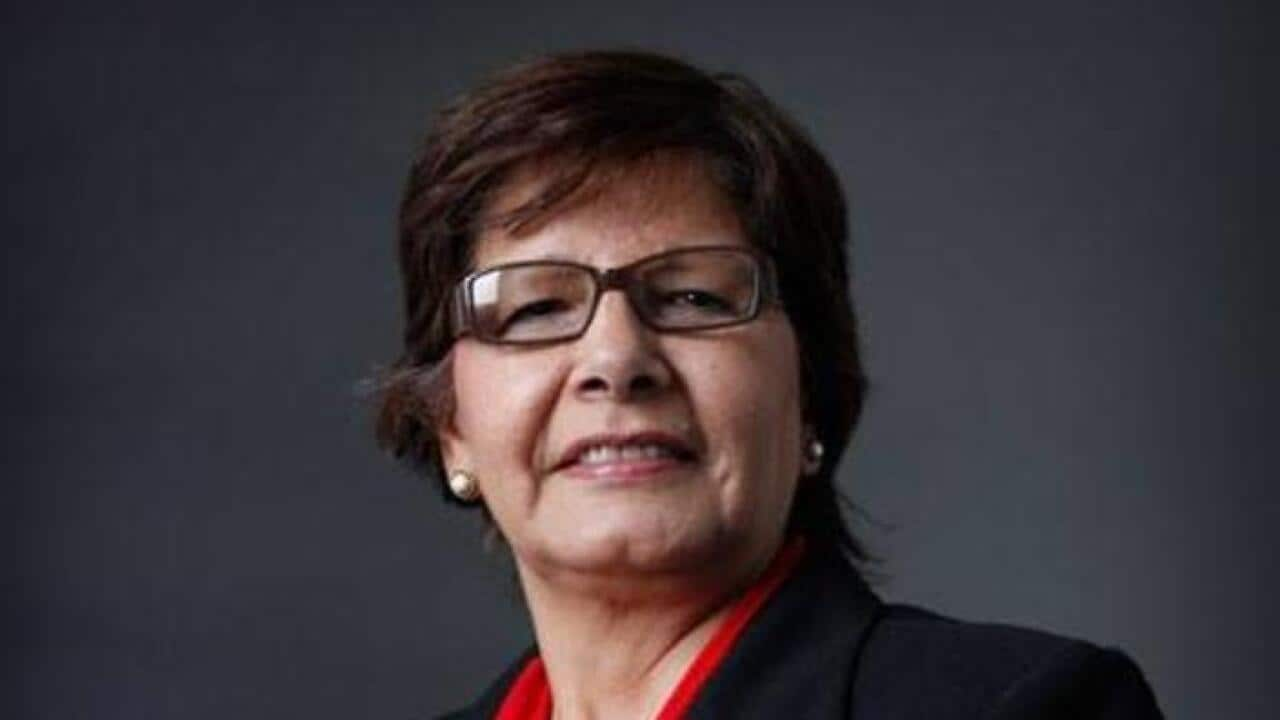Chilean Adriana Rivas fronted the Federal Court in Sydney on Tuesday in an attempt to quash a ruling made in the Sydney Local Court in 2020.
On October 29,
Rivas' lawyers are asking that orders by Magistrate Stewart be blocked and Rivas be released from custody.
Rivas is accused in her country of the aggravated kidnapping of Víctor Díaz while working as an agent of the Chilean secret police DINA.
Díaz was the secretary-general of the Communist Party who disappeared in 1976 along with six other members of the movement. Rivas denies all the charges against her.
Rivas denies all the charges against her.

Adriana Rivas during an interview with SBS Spanish reporter Florencia Melgar in 2013. Source: SBS Spanish
During Tuesday's hearing, Rivas' lawyer Frank Santisi called Magistrate Stewart's decision "wrong", arguing that he did not consider that the Amnesty Law enacted in Chile during the Pinochet regime was still current as "there is no parliamentary law that it says that the Amnesty Law is invalid".
Therefore, according to the lawyer, the accusation of Rivas is "a retrospective prosecution" and is "inviting Australia to participate in the exercise on the prosecution of something that is not prosecutable" and that goes "against the constitution of Chile".
The representative of the victims' relatives in Australia, Adriana Navarro, told SBS Spanish that the situation in Chile cannot determine that the crimes for which Rivas is accused cannot be prosecuted “because it is clear from the statements and the interpretation of the law in Chile that crimes against humanity do not prescribe".
Trent Glover, the attorney representing the Chilean government in the extradition process, said that the possible issue of unconstitutionality is a "matter that concerns the Chilean courts" and that it does not affect the extradition process.
Referring to Rivas' defence reasons, Mr Glover said "[It's] simply not right to say that the magistrate just regurgitated what Chile was telling him to".
Mr Santisi insisted on an argument previously heard by which he defends, that the material presented in the extradition request “is insufficient and does not show that the DINA was an illegal group, nor if Rivas was present at the Simón Bolívar Barracks when the alleged crimes occurred".
He also
For his part, Mr Glover argued that, according to the documentation presented by Chile, “It is clear that [DINA] was a secret organisation outside the law and that the Simón Bolívar centre is described as an extermination centre".
He also argued that according to the evidence presented by Chile it can be concluded that “[Rivas] was an agent and that she actively participated in that group,” something that Rivas herself denies.
During the October hearing, Magistrate Stewart said he felt "satisfied" with the information presented in Chile's extradition request while confirming that DINA be considered a "criminal group” under the laws of the state of New South Wales.
What are the next steps?
The Federal Court judge is expected to take some time before making a ruling, though no date has been set.
The battle for the extradition of Rivas can happen quickly or last several years, as she can take his appeal process to the High Court of Australia. It is the State Attorney General who must give the final order of the extradition of Rivas.
A previous extradition process, the case of Dragan Vasiljković, a former Serbian paramilitary leader who was extradited to Croatia in 2015, took nine years after his arrest in Perth.
